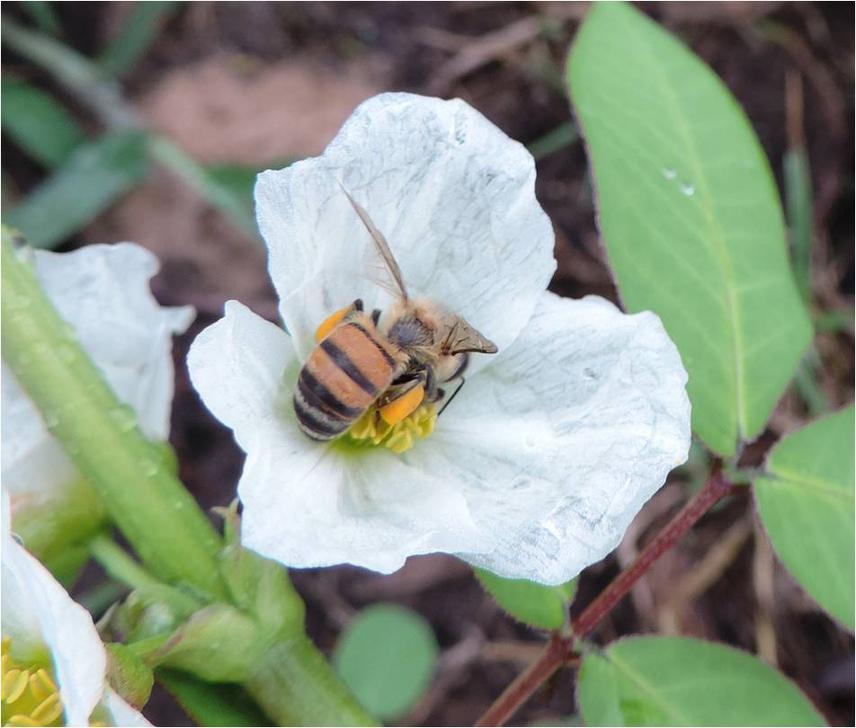Camila Silveira de Souza
This project will assess the composition of plant species and their floral visitors, as well the structure of the interactions network established between these groups in the southern Pantanal, Brazil.

Apis mellifera Echinodorus.
The Pantanal is one of the largest wetlands in the world, comprised of a mosaic of vegetation types. Studies on pollination in the Pantanal have focused on single groups of animals or plants, whilst community-wide studies that include all visitor groups and plants have not yet been conducted. Pollination is a key process in the reproduction of most flowering plants. One important issue that needs to be studied is the effect of the invasive honeybee, Apis mellifera, on the network of interactions between native pollinators and plants in this region. Apis mellifera is a super-generalist floral visitor and may affect the structure, maintenance, conservation and biodiversity of plant pollinator networks, modifying the interactions between native species. The idea for this project arose from the need to understand the network of pollination interactions in the Pantanal and the role of honeybees in this network as an important step in preserving vital pollination services in this ecosystem.
In this project we aim to understand the patterns of interactions between pollinators and plants in southern Pantanal, through evaluating the composition of plant species and their floral visitors, as well as the structure of the interaction network established among them. To achieve these goals we will:
1) evaluate whether the most abundant species and/or those with more generalized characteristics have more interactions and thus contribute more to the preservation of interactions;
2) investigate the role of Apis mellifera in pollinating native plant species in southern Pantanal and its role in network interactions;
3) investigate if Apis mellifera visits the same plant species as other native pollinators with similar functional characteristics.
This study will help to understand how these ecological services help to ensure the maintenance and functioning of the Pantanal ecosystem. The knowledge and understanding of mutualistic interactions will facilitate the planning of basic guidelines to start an action plan for species conservation and ecosystem management in this environment. As a direct result from this project, we will be able to determine mitigation measures that will be essential for the conservation of plant and pollinator species in Pantanal areas. Government agencies will have the capacity to incorporate the results from this study in future conservation policies and actions.